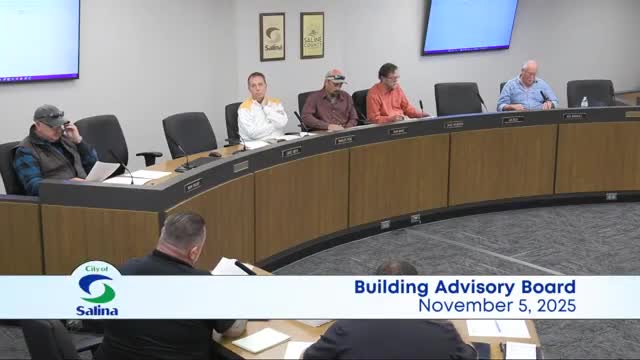Board raises concerns about expired permits and enforcement; staff outlines follow-up and court enforcement process
Get AI-powered insights, summaries, and transcripts
Subscribe
Summary
Commissioners described cases where permits expired after rough inspections and construction continued without further city inspections. Staff explained the permit-extension process, notification practices, limits on entry, and municipal-court enforcement for work without a permit, and agreed to research policy options for stronger follow-up.
Several commissioners used the Nov. 5 meeting to raise enforcement concerns after they described recent instances where building permits expired roughly 180 days after a rough inspection and work continued without documented final inspections.
Charles Renz said he knew of examples from the past year in which a permit reached expiration following a rough inspection, and the owner completed the project and moved in with no follow-up final inspection. Renz expressed concern that, operationally, the city—s current handling could allow work to proceed without the intended oversight. Rodney Rexwinkel, commercial plan reviewer, and Lauren Driscoll, director of community and development services, explained the city's current practice: each inspection resets the 180-day expiration clock; the system sends the permit holder a notice one month before expiration; permit technicians attempt additional contact at expiration; permits are marked "inactive/expired" but remain in the system and can be reactivated for inspection. Staff said they reach out at least twice before marking a permit inactive and do not "close" the file automatically.
Staff also summarized enforcement options for work performed without a permit: building services can issue a violation under Chapter 8 and refer unresolved cases to municipal court. Rexwinkel said the only practical enforcement mechanisms involve municipal-court referral, fines and, if necessary, court orders; staff do not have authority to force entry into a private residence without permission. Commissioners noted the public-safety implications if final inspections are not completed and asked staff to research whether policy changes (for example, a physical site visit when a project reaches expiration or different notification/inspection workflows) would be feasible.
Staff agreed to research options, consult with legal about property-entry limits and enforcement pathways, and return with recommendations or policy options at a future meeting.
